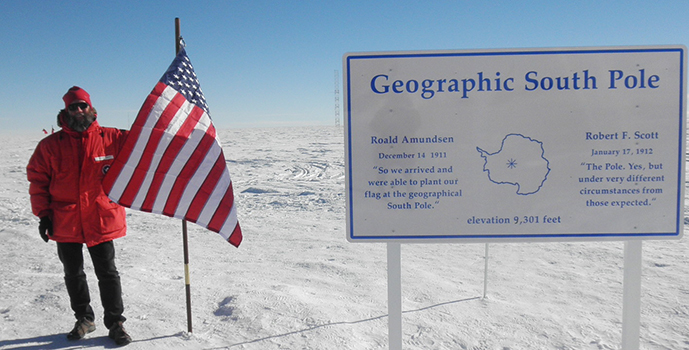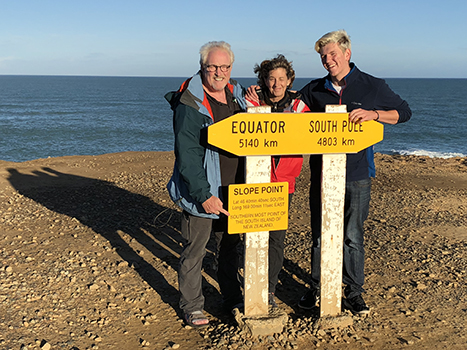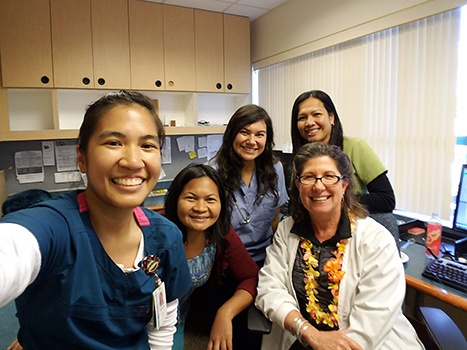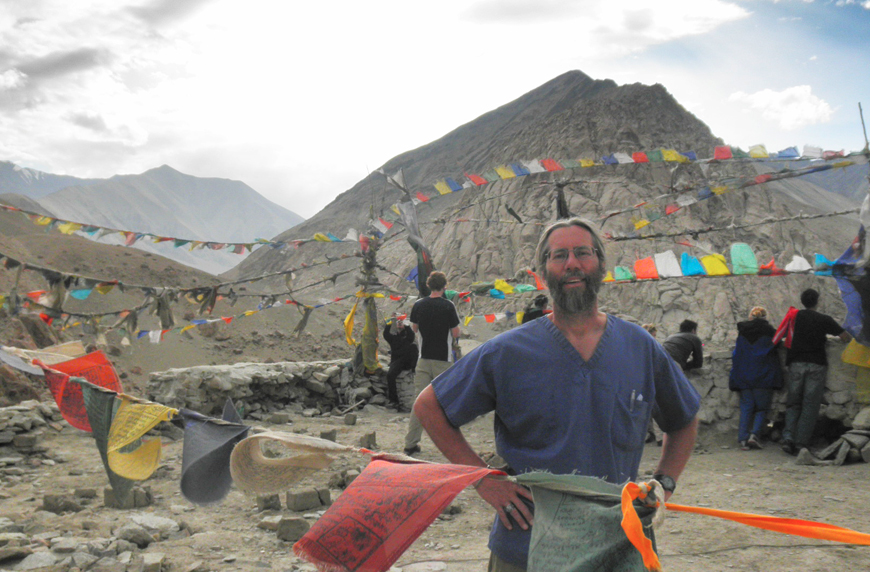International travel is always exciting, and taking a short- or long-term international locum tenens job in family medicine seems like the ideal combination of working, learning about a new culture, and exploring the world. However, it’s important to recognize that some aspects of working internationally can be a challenge — from unexpected cultural differences to licensing logistics to the many different approaches to the practice of medicine.
To better understand these differences, we talked to three family medicine doctors who have worked international locum tenens. Here’s what they learned about practicing outside the U.S.
Cultural differences affect patient care
Dr. Mark Peterson is a family medicine physician who, in his 39 years of practice, has worked in many different countries, including New Zealand, India, Cameroon, New Guinea, Honduras, Kenya, Ecuador, and even Antarctica. Most of these jobs have been for medical missions, but include international locums as well. Before he worked as a locum tenens physician, he spent more than 25 years working for the Indian Health Service. So, he is more than used to different cultures.
He says these differences especially stand out in the developing world. For example, he encountered some patients who were sick and believed it was because their sister-in-law put a curse on them, and they needed to know how to stop the curse.

Diagnosing and treatment varies
Most locum tenens physicians expect cultural differences. Something that was difficult for Dr. Peterson to adjust to was the difference in how you diagnose illnesses.
“In the developed world, you focus on trying to narrow down a diagnosis,” Dr. Peterson says. “In the developing world, you have to use more of a shotgun approach because you just don’t have the resources to focus on a specific diagnosis.”
Another issue that Dr. Peterson has run into is that he has had to learn different medical systems. For example, lab units are different. Once, he had someone say, “My sugar is too high, it’s up to 20.” Dr. Peterson was initially baffled because in the United States, 20 means a coma. Plus, drugs often have different names, so it can be tricky to prescribe the right medication.
In New Zealand — where he worked locums through CompHealth’s sister company, Global Medical Staffing — Dr. Peterson encountered another difference in the approach to medicine that surprised him. Doctors there tend to focus on the issue at hand during an office visit, rather than examining the whole person. Once, Dr. Peterson had a patient who had been in two weeks earlier to see another doctor for a physical exam. He returned complaining of ear pain. When Dr. Peterson took a look, he found half the ear had been eaten away by skin cancer. “It was ‘We’ll focus strictly on the problem in front of us and not do anything else.’ It’s still a very modern medical system but there are cultural differences.”

Resources are often more limited
Dr. Phyllis Dunckel is a family medicine physician currently working international locum tenens through Global Medical Staffing in a rural area on the north island of New Zealand. She’s been working there for a year and a half, and she has had a similar experience to Dr. Peterson’s. She explains that part of what causes this culture in New Zealand is that it has a much more limited budget compared to the United States’.
“Lots of things — that might seem reasonable and appropriate to me coming from America — are just not available,” says Dr. Dunckel. “Or they’re available, but you have to wait an extended period to get them done.”
Dr. Peterson asserts that this realization is even harder in the developing world. He has had patients who have conditions that in the United States would be curable. But in the developing world, he has to tell his patients that their condition is going to leave them disabled, or eventually kill them.
Navigating the paperwork
Dr. Marye Lois McCroskey is family medicine physician who has worked locum tenens in Hawaii and the Caribbean. Dr. McCroskey had been working in her own private practice in Tennessee for about 25 years. When that practice was bought by a local hospital, she realized it was a good time in her career to try something new. She spotted a job with Global Medical Staffing in the Virgin Islands. A physician there had been badly impacted by Hurricanes Irma and Maria and needed extra help.
While she enjoyed her experience, she found that getting the right licensing and malpractice insurance was beyond difficult in the Virgin Islands. Global Medical Staffing helped her navigate the maze of paperwork, but even so it was difficult to figure out what she needed for documentation. Communication with the island government was difficult too. When she finally was issued a license, they didn’t notify her until a month later.

Money vs. experience
One thing all three doctors agree on is that working internationally is worth it for the experience, even if it pays less than working in the United States. In New Zealand, Dr. Peterson made about a third of what he makes in the States.
“You may not get paid as much for it, but along the way there’s a lot more to life than the money you make,” says Dr. Peterson. When it comes to his time working outside of the U.S., he says, “There is no way they could have paid me enough to really have rewarded me with what the experience was like.”
Seeing the world
While working international locum tenens can have its challenges, all three doctors have seen and done amazing things on their travels.
Dr. Dunckel decided to try international locum tenens when her son was about to graduate high school. She figured traveling in New Zealand would be a good way for the family to have an adventure together before her son left home. In their travels in New Zealand, they have seen active volcanoes, had manta rays swim through their legs, and took a boat through a place called Doubtful Bay, where there are 500 waterfalls cascading into the bay.
Dr. Peterson spent a season at McMurdo Station, the largest base in Antarctica. He says ironically, it wasn’t particularly exciting, as he mostly treated frostbite and dry skin. But, he says, “Antarctica is a world all on its own. That was pretty unique itself.”
Want to learn more about working an international locum tenens assignment in family medicine? Give us a call at 800.453.3030 or view Global Medical Staffing’s international locum tenens job opportunities.
 Blog
Blog